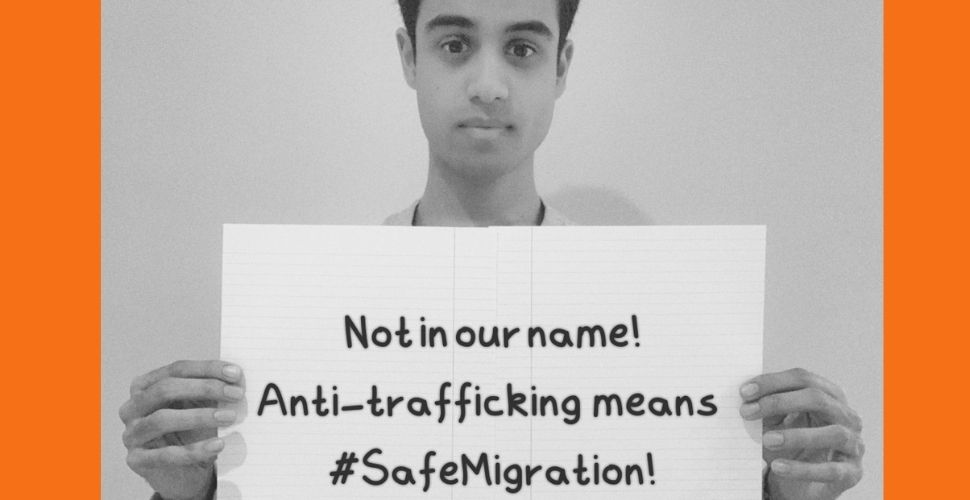The UN’s first International Migration Review Forum (IMRF) got underway this week, a platform to assess how member states are progressing in implementing the Global Compact for Safe, Orderly and Regular Migration (GCM) in what could be “a moment to renew our commitment to the rights of migrants.”
Writing in openDemocracy, the International Coordinator of the Global Alliance Against Traffic in Women, Bandana Pattanaik, interrogates the effectiveness of the IMRF, whether the forum will allow civil society to genuinely hold states accountable to commitments made in the GCM, or whether it will be “yet another exercise in showcasing rhetoric to hide an absence of action?”
Harmful immigration policies
Skepticism around the progress states are making with regards to protecting the human rights of migrants is not unfounded. We are seeing a disturbing pattern globally – governments are using anti-trafficking rhetoric to justify harmful immigration policies. Right now, immigration legislation, such as the Nationality and Borders Bill in the U.K., will harm trafficking survivors.
These restrictive laws make it both harder for trafficking victims to access support they are entitled to under international standards and risk increasing trafficking as options to move safely reduce. As a result of unethical immigration policies, it’s now easier than ever for traffickers to exploit people made vulnerable through the systematic denial of their rights.
States must implement rights-based measures
A global UN survey found that many states had policies in place to curb irregular migration with little to no focus on protecting human rights.
The Global Coalition on Migration recently published a new report ‘Spotlight Report on Global Migration’ centering migrants’ perspectives and makes rights-based recommendations to states in the implementation of migration policies.
There is no data to support the notion that creating permanent regular pathways for migrants and regularising undocumented people will strain the economic or social systems of destination countries. On the contrary, such policies would go a long way in reducing livelihood insecurity, building just societies, and strengthening local economies. Destination states must let go of the false notion that migrants are a burden or threat to their countries once and for all.
The hostile nature of borders and immigration policies fails to acknowledge the humanity of migrants and undermines the rights afforded to all of us through virtue of being human. In the vacuum of these rights, modern slavery and human trafficking are allowed to flourish.
Not only are states ignoring international recommendations, they are co-opting anti-trafficking arguments to justify restrictive immigration policies that are harming migrants and trafficking survivors. This is unacceptable.
That’s why Freedom United launched a new campaign this week calling on all states to pass genuine anti-trafficking immigration policies.
Add your voice to this important campaign today and let’s keep up the pressure on states to act.








Freedom United is interested in hearing from our community and welcomes relevant, informed comments, advice, and insights that advance the conversation around our campaigns and advocacy. We value inclusivity and respect within our community. To be approved, your comments should be civil.
Thanks for sharing your thoughts. As a community that campaigns against human trafficking, it’s essential for us to understand which policies and legislation effectively reduce human trafficking, and which exacerbate it. Research points to tough border regimes and hostile environment policies as frameworks which create more vulnerabilities to trafficking among people on the move. While human trafficking is an illegal practice as you say, it is not illegal to seek asylum in a different country. We believe that people seeking safety shouldn’t be forced to take dangerous routes.
You people TRULY do live in a vacuum!
Human trafficking is NOT a legal practice (a reminder).
The despicable things performed at national borders in this regard are ALREADY ILLEGAL.
Only one way to stop (or at least lessen) this inhumane practice:
STRENGTHEN BORDER SECURITY!
Build higher/deeper fences
Install sensors (movement and seismic).
Make enough noise to deter/discourage illegal immigrants.
You will NOT stop trafficking by creating another law!
Join the real world fools!